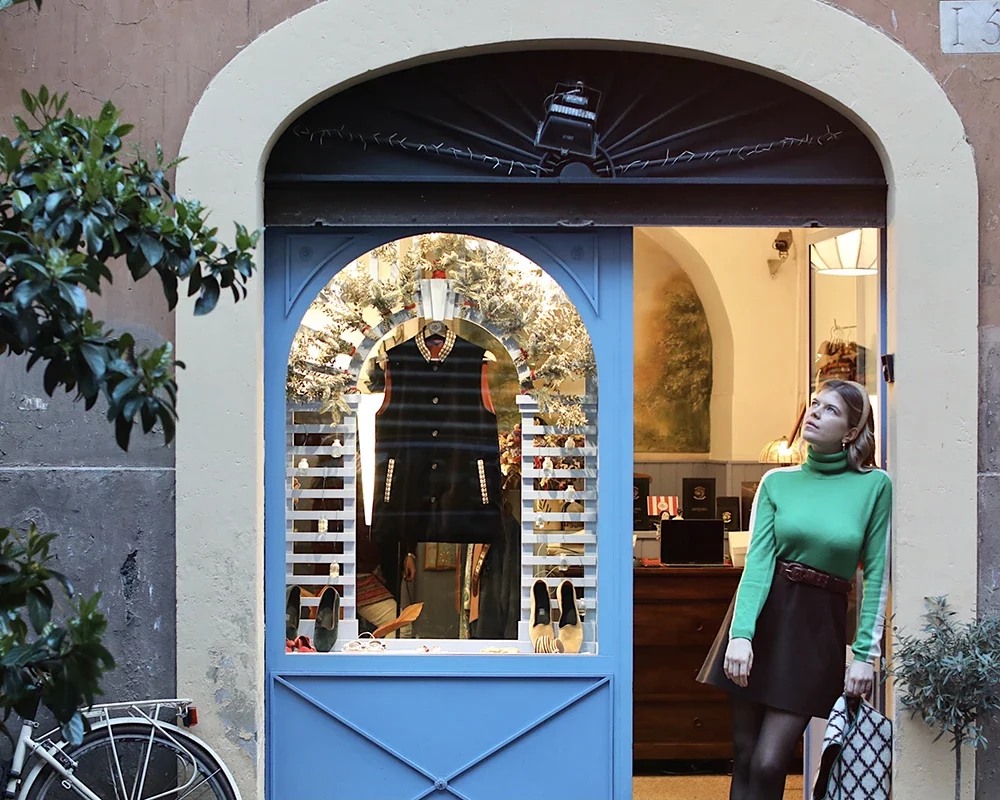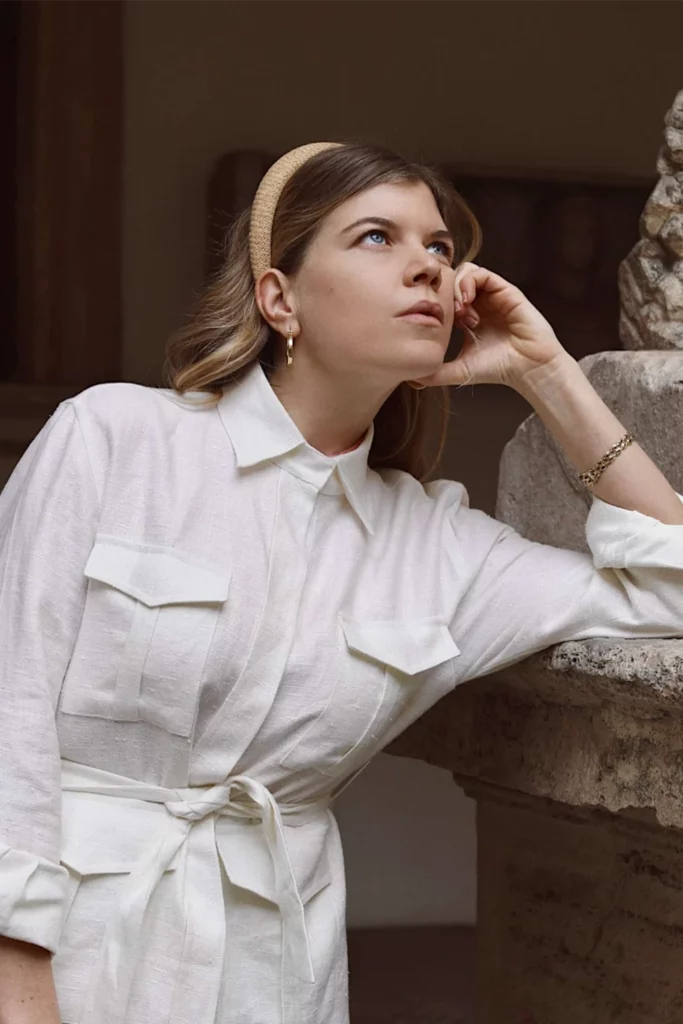- BY ISSIMO
- September 29, 2023

Bespoke tailoring might not be as popular as decades past, but in Rome, it’s thriving. Walk the cobblestones streets of the Eternal City, and you’ll still find in fact a handful of master tailors meticulously curating every stitch, every fold, and every contour to craft garments that are not mere clothing but exquisite expressions of individuality.
A case in point? Le Tre Sarte, a made-to-order independent brand that’s been quietly preserving the time-honoured craftsmanship in contemporary ways – and has some of its gorgeous garbs on ISSIMO for you to add to your closet.
The artisans behind it merge classical techniques with modern-day aesthetics, resulting in garments that are not just impeccably made but also inherently stylish, and perfect for fall.

We met with Le Tre Sarte’s founder, Camilla Voci, to know more.

For those who may not know you: What is Le Tre Sarte?
Camilla Voci: Le Tre Sarte is a Rome-based – and Roman! – modern tailoring company.
When did you launch the brand?
C: Two years ago, I came back from Paris, where I was lucky enough to work for the Opera. I was involved in philanthropy there, and on the floor below the office was the atelier of the costume designers. Going down to see the seamstresses and getting lost among the colours of the silks became a daily habit, and it was thanks to them that I honed my sense of touch and learned to recognize the quality of fabrics.
Describe Le Tre Sarte in three words!
C: Creative, sustainable, Roman.
Why is it important to preserve bespoke tailoring?
C: I could list endless reasons why it is important to preserve bespoke tailoring. The reason that is closest to my heart is the philosophy behind choosing it– the consumer’s conscious choice to replace the act of shopping with an experience that expresses creativity.
Upon entering our workshop, one can spend hours touching fabrics and evaluating patterns, then choosing the one that most closely matches their personality and physical attributes. It is not the body that has to adapt to the sizes and styles dictated by fashion, but the garment that becomes “second skin.” Also, in a country like Italy with a history of excellence in the field, I think it is not only a moral obligation to preserve tailoring, but also an economically winning choice.
Tell us about the sustainability behind the brand!
C: Environmental sustainability is at the heart of the project, which wants to fit into the fashion industry but without adhering to a system that too often produces for the sole purpose of selling, regardless of the impact it all has on our planet.
With tailoring we move in a way that is diametrically opposed to that trend. This is made possible by a series of practices put in place from the very beginning and characteristic of tailoring. We are talking about mainly made-to-order production, which makes it possible not to accumulate finished products in the warehouse and avoid having to deal with the consequences, both economic and environmental.
For fabrics, as already mentioned, we select stock from high quality overproduction, fabrics that we recover so that they can be used and not thrown away, because large companies often produce far more than they need, putting a not inconsiderable amount of “waste” into circulation. We call it zero-impact tailoring.
What does it mean to be on ISSIMO?
C: It’s a great honour! We share with ISSIMO a passion for Italy and its values: the beauty and creativity of its craftsmanship, the incredible ability to weave together tradition and modernity, and of course impeccable quality. Plus we have the same joie de vivre of course!